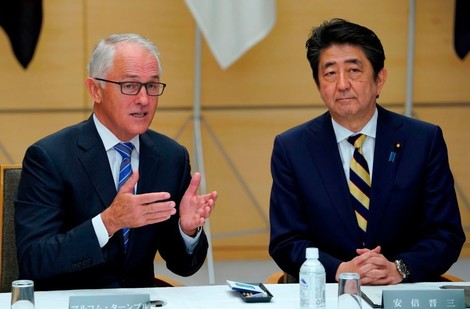Your podcast discovery platform
Curious minds select the most fascinating podcasts from around the world. Discover hand-piqd audio recommendations on your favorite topics.

piqer for: Globalization and politics Global finds
Luis BARRUETO is a journalist from Guatemala. Studied business and finance journalism at Aarhus University in Denmark and City University London.
TPP Is Now CPTPP And It Is Moving Forward Without The US — What It Means For Global Trade Policy
The Trans-Pacific Partnership (TPP) seemed doomed after Donald Trump withdrew the US from the trade pact last year. But leaders from Japan's Shinzo Abe to Canada's Justin Trudeau have worked to resolve their differences, and they announced they will go ahead and sign the agreement in Chile on March 8 — Canada's objections were solved at the last minute.
Bloomberg has a useful run-down of the new deal, now called the Comprehensive and Progressive Agreement for Trans-Pacific Partnership (CPTPP), and whose member states make up for 13% of global GDP. Bloomberg View's editors, meanwhile, underscore the deal's importance by arguing it confirms the US no longer leads the global economy.
That may be a bit of an overblown claim, but the sign to move ahead with or without the US is important for all members, but especially for those two countries.
Japan And Canada Step Up To Trump
The revived trade pact is seen by many as one of the most ambitious trade agreements ever, as it sets new standards on issues such as data flows. It is also open for new countries to join, including South Korea, Thailand, Indonesia, the Philippines. Even the US could come back into the fold in the future.
I've written elsewhere that a deal of this sort aides Japan in countering China's influence in Asia. That explains why it spearheaded the negotiations to push forward with it.
It is also relevant for Canada's commercial ambitions, as CPTPP shows they can move forward on trade liberalization despite the US's reluctance under Trump: it signals that they have options. This could prove crucial as negotiations over the fate of the North America Free Trade Agreement (NAFTA) continue. And while key issues remain contested, such as particular measures for the auto industry, it seems to give Canada an upper hand.
Stay up to date – with a newsletter from your channel on Globalization and politics.
